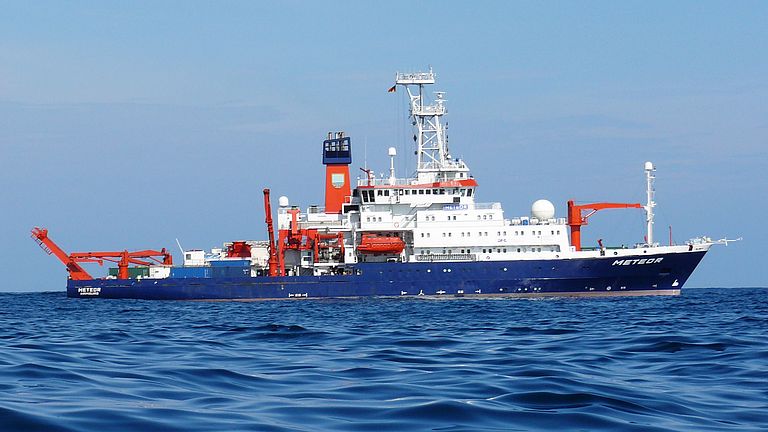German Marine Research Alliance welcomes the construction of the new METEOR IV
New research vessel METEOR IV takes over for METEOR and POSEIDON in the German research fleet
- Press Release of the German Marine Research Alliance -
Starting 2026, the METEOR IV is expected to replace the current METEOR, which is already 37 years old, as well as the POSEIDON, which was already decommissioned in 2019. The METEOR IV will be capable to be used across all marine research disciplines and will be deployed primarily in the Atlantic, but also worldwide.
“Marine research is a globally interconnected and organised field, with a multitude of international and regional programmes, projects and initiatives,” explains the Board of the German Marine Research Alliance (Deutsche Allianz Meeresforschung, DAM). “In order to continue to make important contributions to the understanding of the ocean and the preservation of its functions, German marine research needs equipment that is state-of-the-art. This is vital to the survival of our species, but also relevant to Germany to maintain its position at the top of international research. The construction of METEOR IV takes these requirements into account.”
Research vessels are essential to improve the temporal and spatial resolution of biological and oceanographic data in order to increase the predictive quality of computational models. Only in this way can interactions of physical, biological, chemical and geological processes be discovered, understood and their changes and effects – including those of human activity – comprehensively described. This knowledge forms the basis for developing forecasts and recommendations for action for politics and society from a scientific perspective. Research vessels will increasingly assume key positions in the required observation concepts. They will act as floating laboratories, as control, data, information and relay stations for autonomous and towed observation platforms, as training and expertise centres, for the marine researchers and technicians of tomorrow and, last but not least, as successful tools for international cooperation.
The sea is vital for us humans: it regulates our climate, provides us with food and energy, and is a source of recreation and inspiration. But man-made climate change, pollution and overexploitation are endangering this system and its functions. This is also the reason why the United Nations General Assembly has declared the Decade of Marine Research for Sustainable Development (2021 – 2030). Only if we act quickly and sustainably can we preserve our livelihoods for future generations. To achieve this, modern research vessels are needed. The German Marine Research Alliance is grateful that the Federal Government is providing the necessary infrastructure for this.

Research vessel METEOR. Photo: Hermann Bange, GEOMAR


